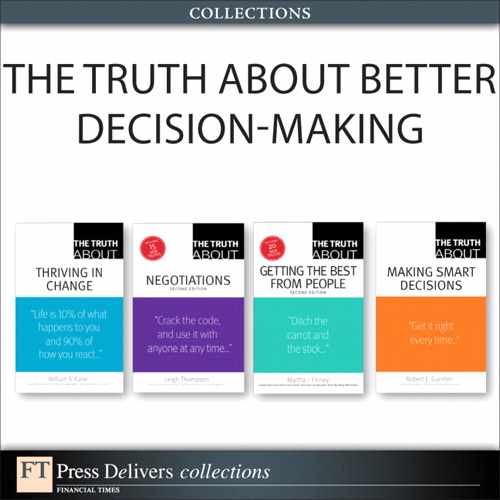Truth 46. Are you an enlightened negotiator?
Imagine that you’re negotiating with your identical twin, a person with a similar personality to yours. How would the negotiation turn out? Lovefest? Catfight? Standoff? If the answer is anything except a win–win lovefest, we’ve got a problem, Houston. One of you needs to change.
Suppose you’re negotiating with a counterparty whom you trust and admire and with whom you wish to have a long-term relationship. How big do you want the pie to be? This is not a trick question. How do you want to slice that large pie? This is a trickier question. You might say, “Down the middle.” Or, “Fairly.”
Okay, let’s change the question. Suppose you’re about to negotiate with someone you don’t trust, don’t like, or don’t respect. How big do you want the total pie to be? If you said, “As big as possible,” you’re right. Now, how do you want to slice this pie? Most people admit that they want to drive the counterparty down to her barely acceptable set of terms to keep all the added value for themselves.
Whether we love or hate the other party, trust or distrust her, will see her again or not, we always want to extract the maximum potential value out of a deal.
These two extreme cases reveal an important point: Whether we love or hate the other party, trust or distrust her, will see her again or not, we always want to extract the maximum potential value out of a deal. But we may have different reasons for wanting this. In the case where I adore you, I want to divide a large pie between us because I value my own welfare and yours. In the second case, the only reason I want a big pie of resources to divide is that I want to grab every dime for myself, and I know that there will be more for me if I can discover it.
Thus, one of the key revelations related to win–win negotiations is that we should always want to maximize the pie, regardless of circumstance or whether we are altruists or opportunists. Win–win negotiation can be used solely for self-interest, but it is also the best strategy in completely altruistic negotiations.
It would be naïve to believe that the counterparties you encounter in life are not just as smart and motivated as you are. The enlightened negotiator embraces the fact that the counterparty is smart, ambitious, and has complex, multifaceted motivations.
One of my earliest experiences with enlightened negotiations came at a large pharmaceutical company engaged in a multiday negotiation training program. “We’ve invited key clients to this training,” the pharmaceutical folks who had developed the program told me. I was aghast—they had invited the “enemy” to hear all their negotiation secrets! They went on to explain that they strongly preferred that the people with whom they negotiate daily be just as expert as they were in the skill of deriving mutual gains through win–win agreements. This was a revelation for me. One of the worst fates that can befall you as a negotiator is to have to reach an agreement with someone who knows a lot less about negotiation than you do. The unenlightened negotiator often hasn’t unbundled the negotiation or prioritized—or even considered—his interests; thus, he clings to positions and demands as if they were rafts in a stormy ocean.
Win–win negotiation can be used solely for self-interest, but it is also the best strategy in completely altruistic negotiations.
The enlightened negotiator, on the other hand, realizes that the best counterparty would in fact be her identical twin—someone who is every bit as knowledgeable, smart, and motivated as she is.
